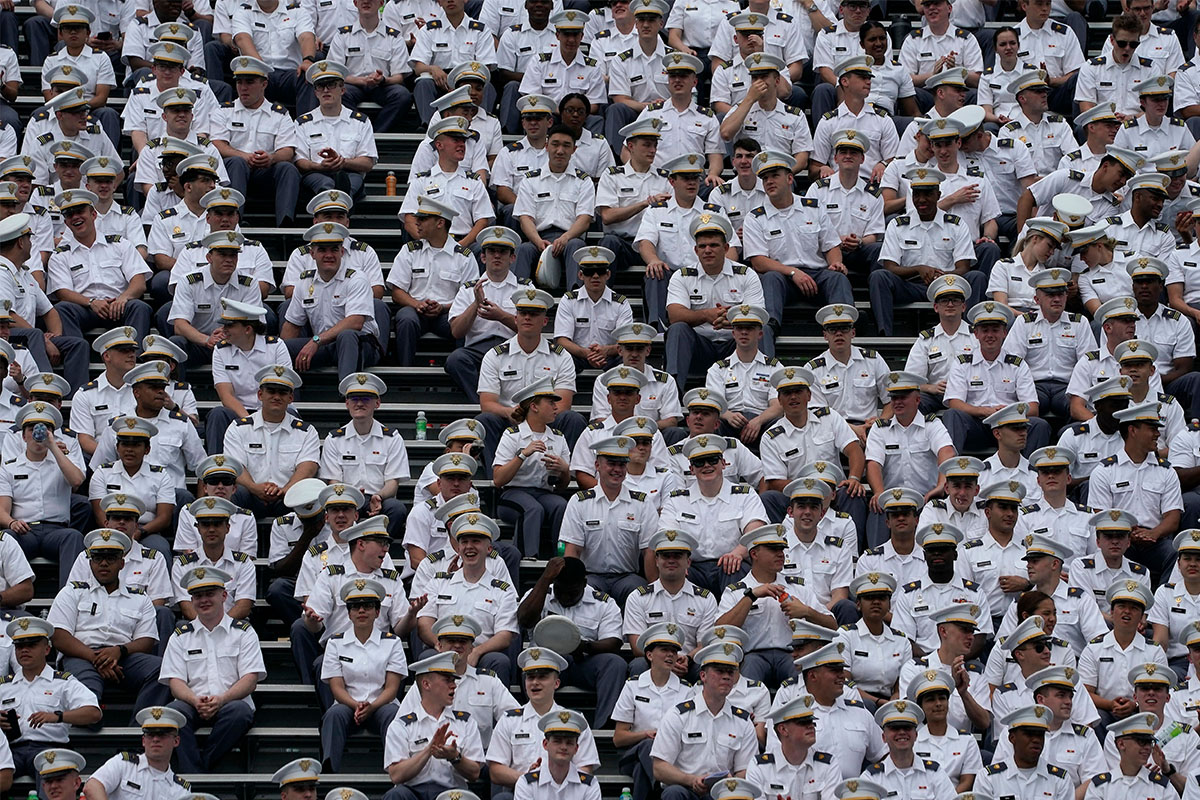After insurgents stormed the Capitol Building last year, hundreds of National Guardsmen were called to protect Congress from further attack. Images went viral of the soldiers taking power naps on the porcelain tile floors. For Americans removed from the rhythms and rigors of conflict, the sight was a reminder of how service members operate: they’re forced to find energy and respite in unimaginably uncomfortable situations, often at the drop of a hat.
But while both active and veteran armed forces pride themselves on this skill, it can enact massive mental and physical consequences over the course of a career. Recent research has confirmed that military personnel suffer from heightened rates of insomnia and sleep apnea (the figure’s actually been skyrocketing since 2005). Splicing sleep together here and there in “non-traditional, noisy environments,” as one study described it, might seem impressive, but it isn’t proper sleep. Combine it with the physicality of the profession, and troops are locked in a constant game of catchup.
A similar scenario is impacting the eating habits of service members. In a recent profile by NPR, soldiers report “chaotic eating situations where one had to either go for a long period of time without eating anything, or [had] to eat very quickly under certain conditions.” According to Dr. Robin Masheb, a research psychologist and the founder of the Veterans Initiative for Eating and Weight, “Those types of things also seem to be risk factors for setting people up for problems with their eating later in life.”
A mountain of research has linked overly-punitive diets with binge eating. As The New York Times recapped back in January, “chronic dieters” are trapped in a self-defeating cycle. Their restrictive eating methods often lead them to overeating. As people start to identify themselves as dieters, their efforts are more likely to backfire. A study by Dr. Janet Polivy and Dr. C. Peter Herman dubbed this phenomenon the “what-the-hell effect.” As a result, medical professionals have gently pushed consumers away from the $250 billion dietary industry, and towards a concept called “intuitive eating,” where they take note of which foods make them feel full and energetic.
Service members don’t necessarily have the luxury of individualism or experimentation. They’re not only compelled to eat (or not eat) at certain times — they also have to pass a variety of strict, outdated fitness criteria. Think: weight requirements, BMI standards and combats fitness tests (in which, if you fall out of the “perfect” range, ranking officers might pin your failure on your body type). A study of Iraq and Afghanistan War veterans now based in Connecticut showed a rate of bulimia at three times the average American.
Also at play: the startling rate of sexual assault in the military, which has gone largely ignored for too long, and has been linked countless times to the development of eating fisorders. Plus, the difficulty many men face — in society at large, let alone with the ranks of “the few, the proud” — in discussing or even acknowledging eating disorders. Women are more likely to develop eating disorders than men, it’s true, but certainly not to a point that the problem should be genderized. Thousands of male service members, active and retired, are dealing with these issues.
What can be done? More funding is needed from the Department of Defense and Veterans Affairs, for starters, in order to get hard data on just how widespread the epidemic is. But there also needs to be institutional and cultural change. How can the armed forces better feed and fuel its service members? When will the erroneous notion that subsisting on nothing makes you stronger (think football coaches screaming “Water makes you weak!”) finally fade away? And finally, let’s start to consider the full arc of a soldier’s life: the habits thrust upon him at 20 will have consequences he’ll be paying off in his 60s. Supporting troops means supporting them for their entire lives — not just when they’re most useful to you.
The Charge will help you move better, think clearer and stay in the game longer. Subscribe to our wellness newsletter today.


















